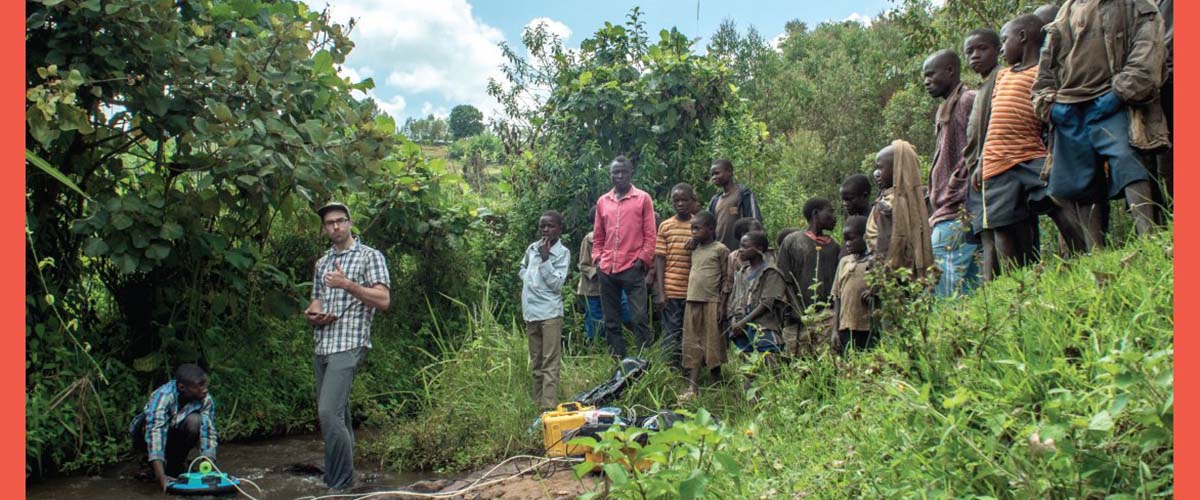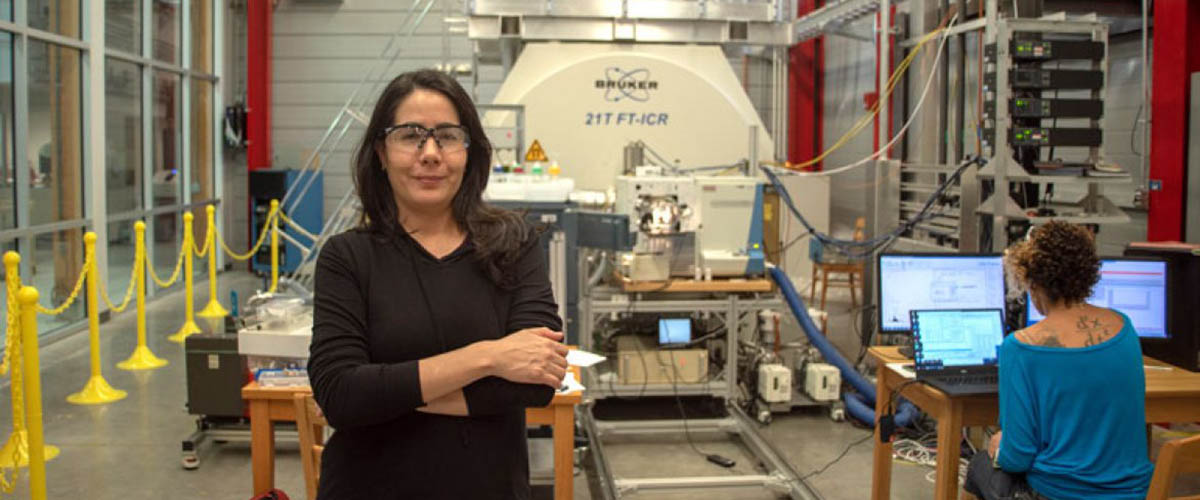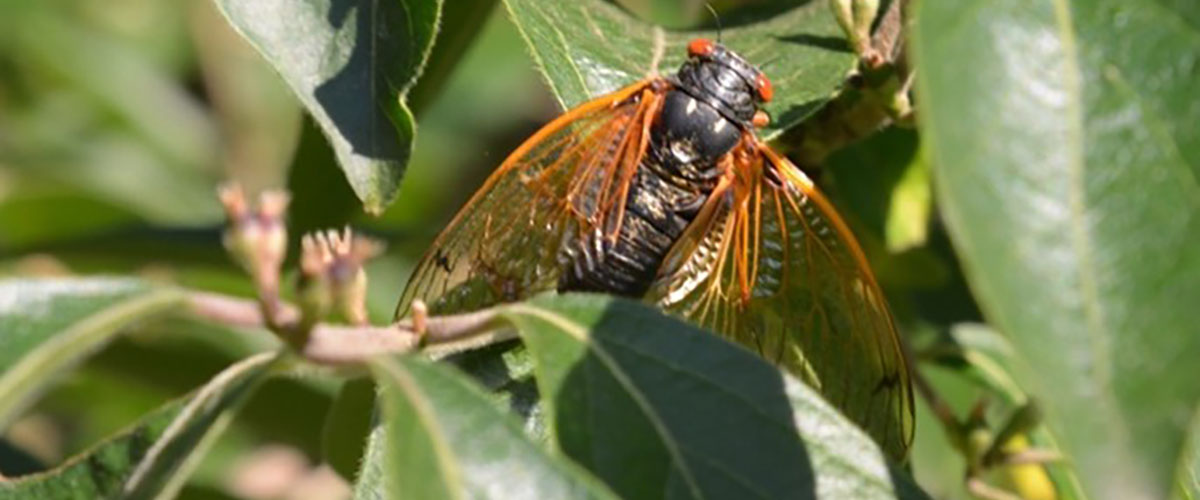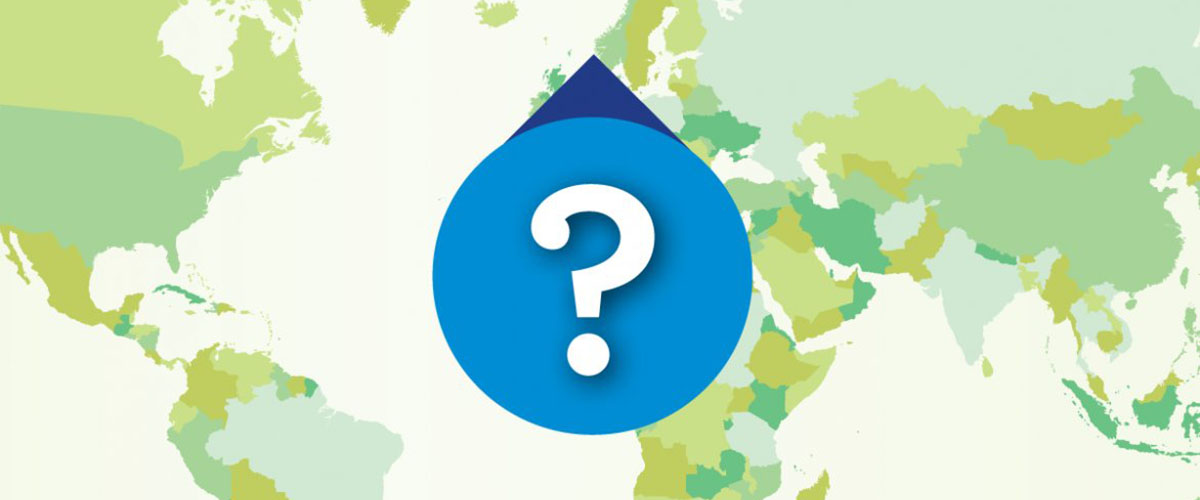The Congo River Basin remains relatively pristine, in an untouched state similar to the Mississippi 200 years ago or the Amazon 100 years ago. Its vast tropical forests have been protected from human impacts by political instability and a lack of infrastructure. To those gutsy enough to conduct research there, the understudied region is a frontier for scientific discovery — a window into an undisturbed carbon cycle and a glimpse of what the planet's other great rivers looked like before the impact of civilization.
Rob Spencer, a biogeochemist at Florida State University who has studied carbon cycling in some of the world's other great river systems, never intended to extend his research to Africa. But when Spencer made a comment about the understudied Congo River during a lecture, a fellow scientist challenged him to study it. He decided: Why not?
"What's the worst that could happen?" he thought.
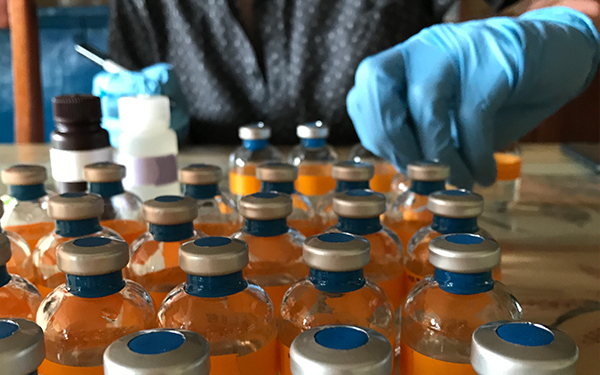
Water samples.
Photo by Adam Amir
Before he knew it, he was deep in the Congo, collecting water samples in one of the most challenging and inaccessible environments on Earth. He and his team have had countless obstacles, adventures and life-changing experiences along the way.
"When people hear you work in the remote tropics, their initial thought is of tropical diseases. And yes, there are challenges that go along with that," says Spencer. "But I actually think that, to this day, one of the biggest challenges in some of the places where we work is just getting food — and this is a challenge a big part of the local population faces every day.”
The Democratic Republic of Congo (DRC), where many of Spencer's field sites are located, has long been politically unstable. "You need the right local collaborators to facilitate access to the sites where we work," says Spencer. Working with local scientists was essential to maneuver the sporadic chaos that can easily occur, especially in remote locations. There has been no shortage of :moments of excitement," as he calls them, in the DRC.
"The Congolese have been some of the most welcoming and friendly people to work with," Spencer says. They also understand that Spencer's research could improve their water quality and the productivity of their soils. Just as doctors take blood samples to assess a patient's health, Spencer's water samples are a measure for how deforestation and agriculture affect local and global carbon cycling.
"What happens in the Congo, doesn't stay in the Congo," explains Spencer. "The forests, swamps and soils of the Congo River Basin can be thought of as a giant tea bag that is leached by rain, resulting in an organic, rich tea that ultimately flows out to the ocean." With the second largest water volume of all rivers, draining the world's second largest rainforest, this river plays an important role in moving a lot of carbon to the ocean and atmosphere.
Deforestation and agriculture can influence the quantity, timing and form of carbon transferred from land to ocean, and ultimately atmosphere. Previous carbon models have extrapolated data from the Amazon to explain global processes, oversimplifying and underestimating the influence of other tropical regions such as the Congo. Spencer brings his water samples back to the National High Magnetic Field Laboratory to fill this knowledge gap.
The National MagLab is home to the world's strongest ion cyclotron resonance magnet, which Spencer uses to create high-resolution "fingerprints" of filtered water samples that reveal tens of thousands of different kinds of molecules in the water. These organic markers create unique signatures that serve as a health index for the ecosystem and provide evidence of the impact of deforestation and agriculture, which are becoming more widespread in the region. Conversion of pristine lands to agriculture impacts not just the quantity but also the quality of the river's carbon, and ultimately its role in the global carbon cycle.
The challenging environment and preconceived notions of what life is like in the Congo are enough to keep many researchers at bay. Spencer sees the humid rainforest, muddy roads, crowds of people and other inherent difficulties of working in a developing country as a small price to pay for unlocking the Congo's wealth of knowledge.
Despite the dichotomy between the region's lack of infrastructure and the high-tech facilities at the MagLab, exploring this scientific frontier is a two-way street, Spencer says.
"As much as we provide access to advanced analytical techniques here at the MagLab, our Congolese colleagues educate us about how the system is transitioning and the pace of this change," he says. "We are building a partnership to bear witness to this impact together, and that's one of the beautiful things about this. The next step is to hopefully do something about it."
Story by Abigail Engleman



